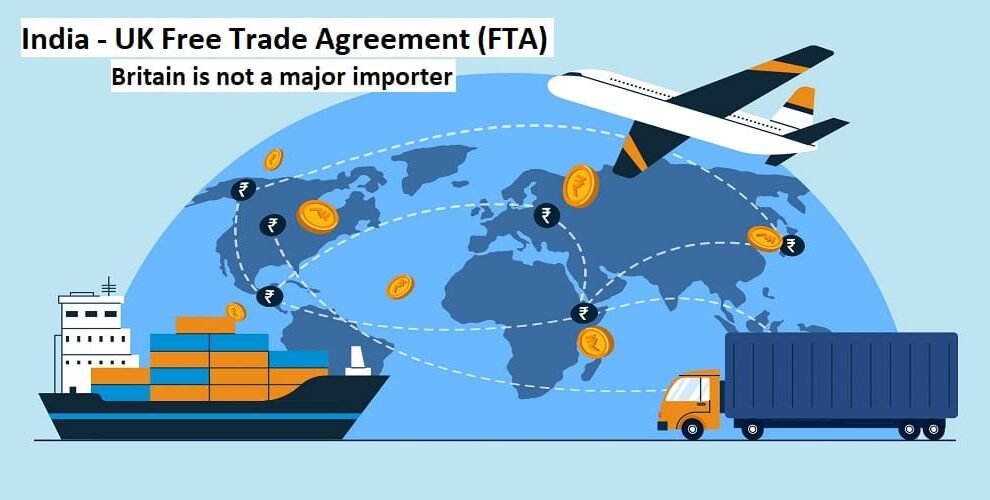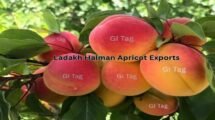India May Not Gain Big from UK FTA in Raw Farm Goods, but Processed Foods Hold Promise
India’s farm commodities may not see significant gains under the Free Trade Agreement (FTA) with the UK, as Britain is not a major importer of raw agricultural produce. Instead, it largely prefers processed food products. On the other hand, Indian agriculture also faces no major threat from the UK, which has limited exports of raw farm products globally.
While dairy has been excluded from the FTA, the UK imports around $3.9 billion worth of dairy products annually. Experts say India could benefit in the processed food segment, where the UK ranks among the world’s top 10 importers — provided Indian exporters meet strict quality standards.
Top Agri Imports by UK
According to data from APEDA, the UK’s top 10 agri imports include cereal preparations, alcoholic beverages, fresh fruits, processed foods, fresh vegetables, dairy products, cocoa items, processed meat, spices, and processed vegetables. In 2023, these imports were valued at $46.34 billion. Marine products rank 11th on the list, with imports worth $2.97 billion.
Data from the US Department of Agriculture shows the UK’s top raw farm exports include dairy (milk and cheese), barley, wheat, chicken meat, corn, sugar, soybean meal, rapeseed meal, and rapeseed oil. The total volume of these exports stood at 2.88 million tonnes. While the UK does import buffalo meat (worth $1.6 billion in 2023), it currently does not source it from India.
Buffalo meat is a major agri export from India — ranked third after non-basmati and basmati rice — with over $4 billion in annual shipments, according to APEDA. Also Read | Parliament Panel Proposes Roadmap to Boost Sustainable Farming
Gaps and Challenges in the Agreement
Although the Indian government has stated that dairy, edible oils, and apples are excluded from the India-UK Comprehensive Economic and Trade Agreement (CETA), experts believe more clarity is needed, particularly regarding buffalo meat, which is missing from the UK’s list of items.
An expert pointed out that the UK’s list classifies goods under broad categories, while India’s document offers detailed listings, including how duty rates will be adjusted. For example, basmati rice isn’t specifically mentioned in the UK’s list and may be grouped under the general category “rice,” whereas the Indian document clearly identifies basmati rice — a product unique to India and Pakistan.
Another key challenge lies in non-tariff barriers, such as the UK’s strict limits on pesticide residues in food imports.
Under the agreement, the UK has agreed to eliminate import duties on “rice in the husk” (paddy) and “brown rice.” However, duties on “semi-milled or wholly milled rice” — which includes processed basmati — remain. This opens the door for Indian exporters to ship basmati in its brown form to take advantage of zero-duty access. Otherwise, fully milled basmati rice shipments will continue to attract a duty of £121 per tonne.
Potential for Basmati and Processed Foods
India exported 2.14 lakh tonnes of rice worth $215.34 million to the UK in FY 2024–25, which included 1.84 lakh tonnes of basmati rice valued at $194.37 million, and 30,460 tonnes of non-basmati rice worth $20.97 million.
“If planned strategically, basmati exporters could earn an additional $100 million annually from this FTA,” said foreign trade policy expert S. Chandrasekaran. “For South Indian rice varieties, the market is expected to grow to about $32 million. Moreover, the FTA opens up significant opportunities in the processed food segment.”
Of the $657.03 million worth of Indian agricultural exports (across 27 APEDA categories, excluding spices, seafood, tea, and coffee) to the UK and Ireland in 2024–25, basmati rice had the largest share. However, processed food items — including cereals, fruit and vegetable preparations, juices, and nuts — collectively brought in a higher value of $237.66 million.
Trade Balance
India’s total agricultural exports to the UK currently stand at $37.52 billion, while imports from the UK are relatively small at just $811 million.


















Add Comment